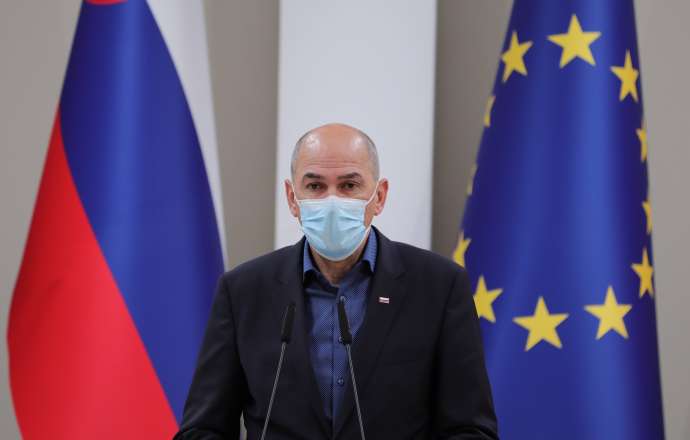STA, 11 November - Prime Minister Janez Janša dismissed the opposition's allegations about government misconduct during the course of the coronavirus pandemic, telling a parliamentary inquiry on Thursday that its decisions were based on opinions by experts.
Opposition MPs quizzed Janša about multiple aspects of government actions, ranging from the decision to roll out mass rapid testing, to the purchase of vaccines and the rationale behind measures that some MPs said had been put in place overnight without giving people adequate time to prepare.
He said mass rapid testing has been rolled out based on the advice of the National Institute of Public Health (NIJZ), the Health Ministry and the ministry's Covid-19 expert group.
Asked whether he had known about rapid antigen tests being unreliable, which is supposedly evident from minutes of meetings of the Covid-19 expert group, Janša said it was general knowledge that rapid tests are more unreliable, which is why all positives are double-checked with PCR tests.
There was a scandal early on involving the supply of rapid tests by Majbert Pharm, some of whose owners had ties to Janša's Democrats (SDS) in the past and had bragged on social media what a "killer deal" they had signed with the state.
Questions have been raised about how their tests were verified, including by a doctor who used to work at the National Laboratory for Health, Environment and Food and recently came out with accusations that the process was not up to standard.
"I did not write the criteria, the competent services did," said Janša, who also denied having personally decided that the Majbert Pharm tests would be verified at that specific lab.
Janša did acknowledge that there may have been abuses in hazard pay received by public sector employees, but he said the heads of institutions were in charge of determining the bonuses and they were responsible for their actions. Abuses that have been detected have already been sanctioned, he said.
One opposition MP alleged that Slovenia had initially opted to prioritise the AstraZeneca vaccine because it was cheaper than the jab produced by Pfizer, but Janša said this was not the whole story.
"It was not just because this vaccine is significantly cheaper, it was also because it seemed at the time that this would be the first vaccine approved by the European Medicines Agency (EMA)."
Then, when he provisionally took over as health minister after the resignation of Tomaž Gantar, he learnt that the EMA would probably approve the Pfizer vaccine first.
"The same day I ordered the ministry to change the strategy and that Slovenia should order all vaccines available, regardless of the price."
As for allegations that the government is taking measures overnight, Janša said experts were always consulted, and sometimes decisions were not adopted the same week even when experts proposed that they should be.
This was Janša's second testimony in front of the commission. Chair Robert Pavšič said he would be invited to testify again.







